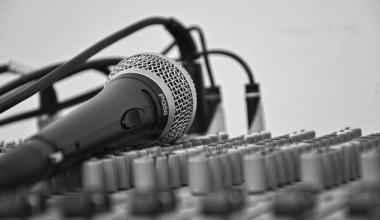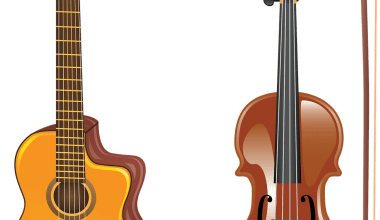Imagine listening to your favorite song after a tough day. Suddenly, the stress seems to melt away, and you feel calmer. That’s the magic of music. It’s not just entertainment—it’s a powerful tool that can improve your mental health. Whether it’s a soulful tune, a fast beat, or the sound of rain mixed with soft melodies, music has a unique way of touching our hearts and minds.
This blog dives deep into how music and mental health are connected. You’ll learn how music helps us feel better, how it’s used in therapy, and how you can make it a part of your life to boost your mood every day.
How Music and Mental Health Are Connected
What Happens in the Brain When We Listen to Music?
When you hear a song you love, your brain releases a special chemical called dopamine. It’s the same chemical that makes you feel happy after eating your favorite food or achieving something great. Music also activates parts of the brain responsible for memory, emotions, and movement.
- Quick Fact: This is why certain songs can remind you of special moments or make you want to dance.
Amazing Benefits of Music for Mental Health
1. Music Lowers Stress
Life can be stressful, but music can help. Slow and soft tunes, like classical or calming nature sounds, relax the body and mind. They slow your heartbeat and help you breathe easier.
- Try This: Play relaxing music when you’re feeling overwhelmed, and notice how your body starts to relax.
2. Music Makes You Feel Happy
Ever noticed how upbeat music can instantly lift your spirits? That’s because it boosts your mood and fills you with energy.
- Fun Idea: Make a “happy playlist” filled with songs that make you smile.
3. Music Helps You Focus
If you’re finding it hard to concentrate, instrumental music can work wonders. It blocks out distractions and keeps your mind sharp.
- Tip: Play lo-fi beats or classical music while studying or working.
4. Music Brings Comfort in Sad Times
When life feels tough, music can be a shoulder to lean on. Sad songs help you process emotions and feel less alone.
- Example: Many people find solace in slow, emotional songs during difficult times.
Music as Therapy: A Healing Tool
Music therapy is a professional way to use music to improve mental health. It’s not just about listening to songs; it includes creating, singing, or even moving to music. Therapists use it to help people of all ages.
- Who Can Benefit?
- People dealing with anxiety or depression
- Children with autism
- Seniors with memory loss or dementia
How Music Therapy Works
- Listening: Helps reduce stress and evoke positive emotions.
- Playing Instruments: Builds confidence and focuses the mind.
- Writing Songs: Allows people to express feelings they can’t put into words.
- Singing: Releases tension and improves breathing.
Music and Mental Health for Everyday Life
You don’t need to be in therapy to enjoy the benefits of music. Here are simple ways to make music part of your routine:
1. Start Your Day with Music
Play a cheerful song in the morning to start your day on a positive note.
2. Use Music for Relaxation
Before bedtime, listen to soothing tunes to unwind and sleep better.
3. Make Music with Friends
Gather your friends and sing karaoke or play instruments together. It’s fun and good for the soul!
4. Dance Like No One’s Watching
Dancing to music is a fantastic way to release stress and feel alive.
Different Types of Music for Different Moods
1. Feeling Stressed? Try Calm Music
Soft piano or sounds of nature can ease your mind.
2. Need Energy? Choose Pop or Rock
Upbeat tunes can boost your motivation and get you moving.
3. Feeling Nostalgic? Play Old Favorites
Songs from your past can bring back happy memories and make you smile.
4. Want to Focus? Use Instrumental
Music without lyrics, like classical or lo-fi, helps you concentrate.
Real-Life Stories: How Music Helps People
1. A Teen Overcoming Anxiety
A young girl used to feel anxious in social situations. Her therapist introduced her to music therapy, where she learned to play the guitar. Over time, playing music gave her confidence and eased her anxiety.
2. An Elderly Man with Dementia
An elderly man with dementia rarely spoke, but when his family played songs from his youth, he began humming and even smiling. Music brought back his memories and joy.
How to Create Your Music Therapy Plan
Here’s a simple guide to making music work for you:
- Set a Goal: Do you want to feel relaxed, happy, or focused?
- Pick the Right Music: Choose songs that match your goal.
- Create a Routine: Spend 10–15 minutes daily listening to or making music.
- Experiment: Try singing, dancing, or writing your own songs.
Music and Mental Health in Modern Times
With apps and streaming services, accessing music is easier than ever. Some platforms even create playlists tailored to your mood or mental health goals. You can also find online communities where people share how music has helped them.
The Future of Music Therapy
Imagine a world where AI creates music specifically for your emotions. This technology is already being developed, making personalized music therapy a reality for everyone.
Challenges to Keep in Mind
While music is powerful, it’s not a substitute for medical care. If you’re struggling with mental health, it’s essential to seek professional help along with using music as a supportive tool.
Final Thoughts: Let Music Be Your Guide
Music is more than just sound—it’s a way to connect with your emotions and heal your mind. By making music a part of your life, you can reduce stress, feel happier, and improve your mental health. So, grab your headphones, turn up the volume, and let music guide you to a brighter, healthier tomorrow.
Related Articles:
For further reading, explore these related articles:
- Wireless Earbuds for Musicians: A Complete Guide to Elevate Your Sound Game
- Revolutionizing the Music Scene with Music Tech Startups
For additional resources on music marketing and distribution, visit DMT RECORDS PRIVATE LIMITED.





